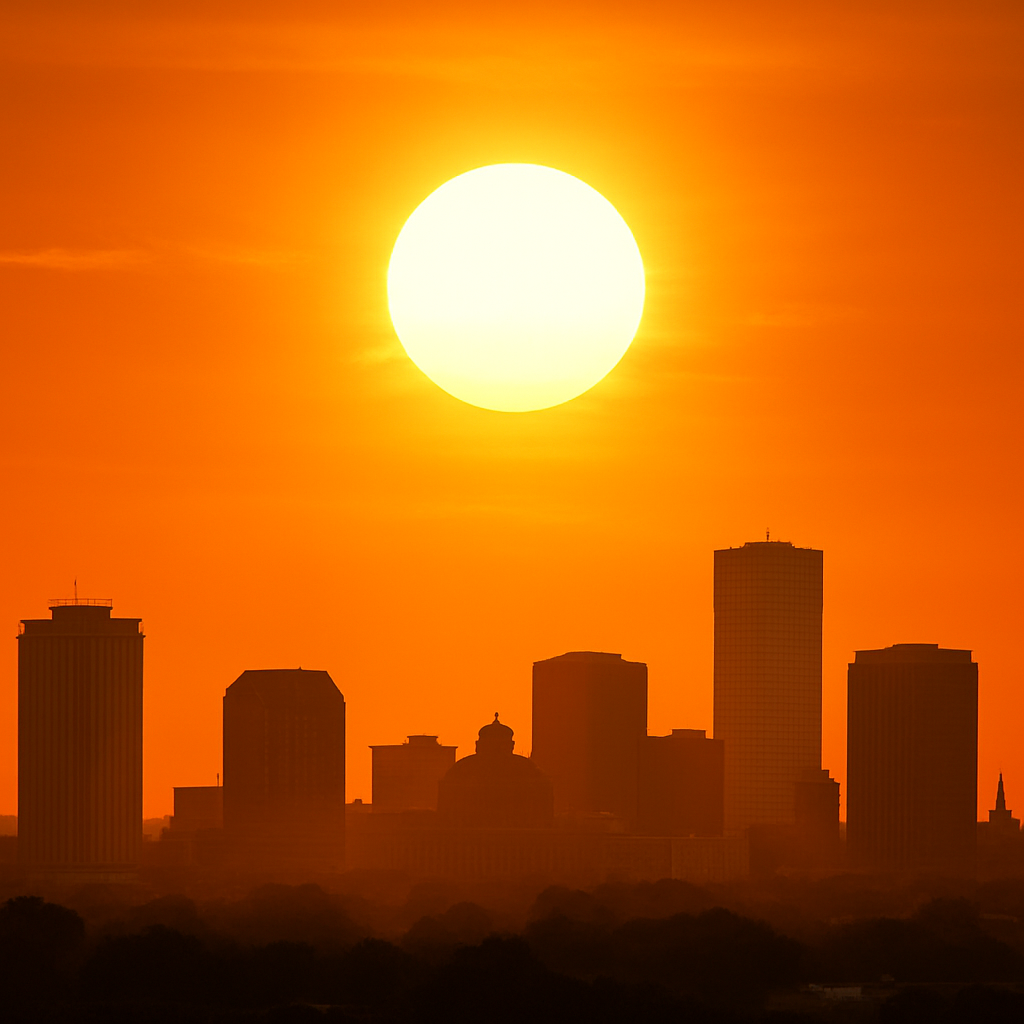Climate change is no longer a distant threat. It is reshaping our daily lives right now. In New Orleans, summers grow hotter each year, and even our so-called mild winters feel like fall. Meteorologists track the official temperature and the “feels like” number driven by humidity. At 92°F with 60% humidity, the body feels more than 100°F. For residents, it often feels like living in a sauna.
The drumbeat from climate deniers, insisting it’s all a hoax to protect polluting corporations, dulls the urgency to act. Yet the risks are real and severe. Progressive leaders have passed laws to cut emissions and monitor air and water quality. But conservative lawmakers have resisted similar measures, leaving workers dangerously exposed.
People who labor outdoors—or inside hot warehouses, kitchens, and factories without cooling—don’t have the luxury of hiding indoors. Their jobs can mean heat exhaustion, heat stroke, or even death.
Workers’ Coalition Finds an Ally
Louisiana Grassroots United (LGU), a coalition of labor and community groups, knew New Orleans workers faced growing danger from extreme heat. They acted.
“In defiance of MAGA and mean-spirited policies that keep workers in the sun all day with no breaks, A Community Voice-ACORN met with City Councilmember Oliver Thomas to draw up worker rights protections in an ordinance,” explained Debra Campbell, ACORN’s president and executive director.
On the 20th anniversary of 9/11, Councilman Thomas called for a vote on LGU’s “Beat the Heat” ordinance. The measure passed unanimously. For the city’s outdoor workers, it was a major victory.
“Dealing with climate change and extreme work conditions, this ordinance is the humane approach for folks who work outdoors in extreme heat,” Thomas said. “This should be standard operating procedures.”

Lives on the Line
Heat waves are intensifying worldwide. The last three summers have been the hottest on record. Louisiana workers are feeling the strain.
Outdoor workers include construction crews, landscapers, mail carriers, delivery drivers, sanitation workers, fruit pickers, and carriage drivers. Indoor workers face danger too—in bakeries, restaurants, laundries, boiler rooms, foundries, paper plants, and warehouses.
The Louisiana Department of Health reported 20 heat-related deaths and hundreds of ER visits between April and August 2025. Jefferson Parish had the most emergency visits, with 217 cases.
Cooling centers in New Orleans helped prevent even worse numbers. In 2024, the state saw 51 deaths; in 2023, the toll was 88. Each loss is preventable. Most fatalities occur in the first days of exposure, before the body adapts.
States Act While Feds Stall
OSHA has been slow to finalize national heat protection rules. But states are not waiting. California, Oregon, Colorado, Nevada, and others already require employers to provide shade, water, breaks, and training. Boston and Phoenix passed city-level rules. San Francisco and New York joined federal climate readiness initiatives.
New Orleans is now a Southern leader in heat protection. The day the council approved Thomas’ ordinance, the city registered a high of 92°F.
“Being mindful of climate change and heat exhaustion, this ordinance reflects our care for employees’ health,” Thomas said.
What the Ordinance Requires
The law sets clear standards:
- Employers must provide 10-minute breaks every two hours when the heat index is 80–89°F.
- Employers must provide 15-minute breaks every two hours when the heat index is 90°F or above.
- Breaks must be in shaded or cooled spaces, not in direct sun.
“This Heat Hazard Protection Plan should be standard,” Thomas added. “I want to thank A Community Voice and all our advocates who stood up for workers.”
Related: Heroes of Katrina: Oliver Thomas and Eddie Compass
Part of a Global Campaign
Local 100 United Labor Unions, ACORN, and LGU are part of the international Beat the Heat Campaign, pushing for worker protections worldwide.
Similar laws already exist in Europe and Asia. Greece, Italy, and Spain shut down outdoor work during heat waves. Singapore, Japan, and Bangladesh have national heat safety plans.
“Governments are beginning to accept that extreme heat is now a predictable, recurring occupational risk that requires structured regulation and enforcement, not just temporary crisis management,” said Andreas Flouris, professor at the University of Thessaly.
LGU is already planning its next step: a stronger ordinance. They want requirements for water breaks and full incorporation into all city contracts by January 2026.
“These steps will make the ordinance stronger and more effective in protecting health and safety,” Campbell concluded.
Extreme heat is no longer an occasional danger. It is a predictable, lethal workplace hazard. Workers asked for protection. Councilman Oliver Thomas listened and delivered.
Keywords: New Orleans heat ordinance, Oliver Thomas, worker rights, climate change, Beat the Heat, ACORN, LGU

